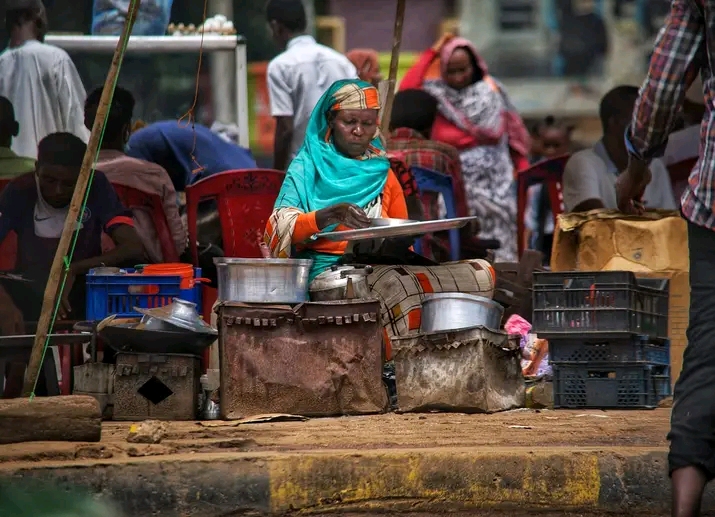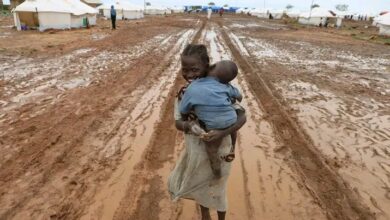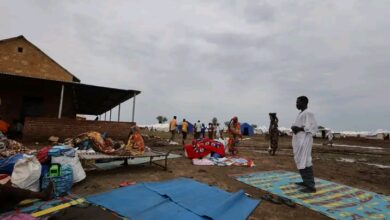Sudanese Women Resist War’s Impact Through Innovation and Small Enterprises
Report – Mashawir

Sudanese women have paid a heavy price in the ongoing war between the army and the Rapid Support Forces (RSF) since the conflict first erupted in Khartoum in mid-April 2023. The violence has since spread to Darfur, Al-Jazira, Kordofan, Blue Nile, and other regions, engulfing over 70% of the country. Most women have endured devastating losses, including looting of property, physical and sexual violence, and the near-total absence of justice or accountability. Many have lost children and husbands, while countless others have been displaced multiple times due to the expanding war.
Nevertheless, Sudanese women have shown remarkable resilience. Many have overcome the dire circumstances by reinventing their lives through trade and small income-generating activities, after losing their formal jobs—despite many being university graduates.
Challenges and Choices
Huda Ali, a former employee at a government institution in Khartoum, recounts how she hesitated to flee her home in the Al-Fitehab neighborhood of Omdurman. “In my view, since even homes could not escape the RSF’s raids, theft, and forced displacement, we found it necessary to flee to states hosting thousands of others escaping the intensifying war,” she said.
“With no transport options left, I climbed onto a large truck—usually used for goods and livestock—with my four children. After a difficult journey, we reached Atbara in River Nile State. Through intermediaries, I managed to rent a modest house at a relatively affordable rate and paid for two months in advance. I also bought essential supplies and household items,” she added.
“Due to the harsh conditions and limited resources, I realized I needed to find a way to sustain myself. After much thought, I decided to start making traditional Sudanese perfumes for women and selling them at the local market. I launched the business from my home with limited financial means. Within just three months, my products became popular—especially among local women and those preparing to travel abroad.”
Huda noted that this line of work was never among her career choices, but the harsh reality of war forced her into it. “I once held a senior position in a government institution, and now I’m supporting my children alone,” she said.
An Uncertain Future
Across the border, Ishraqah Fadl sits behind a small table displaying handcrafted bead accessories. Once a university lecturer in Khartoum, she shared how the war turned her life upside down. “The armed conflict in Sudan disrupted everything, forcing me to seek refuge in Egypt with my children and elderly mother—a journey toward an uncertain future in an already difficult economy.”
“I’ve always loved crafting handmade accessories since childhood, but stopped for many years. Out of sheer necessity, I revived this passion to make a living, especially as I have no steady income. I source beads from Port Said and sell my creations at bazaars, often held during charity events organized by Sudanese women in support of each other,” she said. Ishraqah also markets her products online and has gained a loyal customer base. “Persistence and strong relationships helped me overcome these tough conditions,” she explained.
She stressed that “any kind of work is honorable if it provides a decent living.”
A Different Reality
Social specialist Ahlam Yousif highlighted the severe toll the war has taken on women. “They’ve lost jobs—especially those who are the primary providers for extended families—forcing many to look beyond the battlefields,” she said. “You can now find women working in homes, bakeries, shops, and even launching businesses based on hidden talents to ease the financial burden most Sudanese families face.”
“I’m truly impressed by the willpower of women who’ve overcome the war’s devastation, especially those heading households,” she said. “But the continued war means more violations, especially against women, in the absence of protection mechanisms.”
She also pointed out the growing challenges in work environments both inside and outside Sudan. “Skyrocketing prices of raw materials and ongoing security threats make business even harder. Still, I’m confident Sudanese women will persevere.”
Ahlam emphasized the need for women who are still suffering to stand up again and not give in to despair. “The path to stability is still long,” she said, concluding with an appeal to the international community: “Let us not forget Sudanese women. There must be global solidarity to support and protect them as they work to rebuild their lives.”
New Horizons
Meanwhile, social activist Nasreen Abdelwahab noted that crises often prompt personal transformation. “Some Sudanese states have experienced economic revival following the influx of displaced people, including the relocation of Khartoum’s markets, which has stimulated business activity—especially for women,” she said.
“The war’s harsh economic impact on families has pushed many women to innovate, launching new activities that have gained popularity among various groups. Others have entered new job markets previously unfamiliar to them, which could create positive long-term change,” Nasreen concluded.




